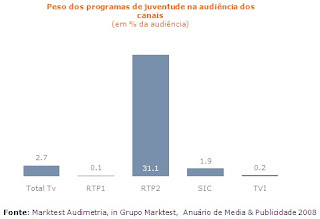
Documentos recentes editados pelo Center for Social Media da American University School of Communication:

Returning to my use of the word literacy to describe both a set of skills for encoding and decoding as well as the community to which those skills provide entrance, I see that the use of Twitter to build personal learning networks, communities of practice, tuned information radars involves more than one literacy. The business about tuning and feeding, trust and reciprocity, and social capital is a form of network literacy. (...)
My students who learn about the presentation of self and construction of identity in the psychology and sociology literature see the theories they are reading come to life on the Twitter stage every day - an essential foundation for participatory media literacy.



 Telemóvel na sala de aula. Para usar sem limites é o título de um trabalho que reporta a experiência de uma escola de Setúbal e que vem hoje no novo diário i:
Telemóvel na sala de aula. Para usar sem limites é o título de um trabalho que reporta a experiência de uma escola de Setúbal e que vem hoje no novo diário i:A última edição do Zambujinho foi positivamente censurada pela presidente do conselho executivo da escola EB 2,3 de Azambuja. (...) Já o boletim informativo da escola circulava naquele estabelecimento de ensino quando, por indicação da presidente do conselho executivo, alguém tratou de o recolher e devolver aos cuidados da censura de Maria Eugénia Vaz. A professora, que preside ao CE da escola, mandou colar um papel negro sobre o exercício de opinião das alunas e posteriormente preencheu o espaço com uma outra notícia.Os contornos aí apresentados, a confirmarem-se, são um contributo extremamente negativo para a formação dos jovens. Aliás, será problemático se situações idênticas ocorrerem com outros jornais escolares. Em vez de contribuírem para estimular a participação cívica, configuram um espaço de censura e de desvalorização (pelo menos num sentido positivo) da expressão da opinião.

" (...) the new curriculum must be underpinned by an understanding of the distinct but interlocking ways in which children learn and develop – physically, intellectually, emotionally, socially, culturally, morally and spiritually – between the ages of 5 and 11. Among other things, a well-planned, vibrant curriculum recognises that primary children relish learning independently and co-operatively; they love to be challenged and engaged in practical activities; they delight in the wealth of opportunities for understanding more about the world; and they readily empathise with others through working together and through experiences in the arts, literature, religious education and much else".A literacia digital aparece como uma dimensão fundamental, associada, mas não reduzida ao acesso e uso das TIC:
"[the increasing digitisation of information worldwide] will require digital literacy of all children for their full participation in society. Information required for leisure, work, finance, communication and citizenship will be mediated electronically. In all branches of knowledge, all professions and all vocations, the effective use of new technologies will be vital. Children not only need to learn to use specific devices and applications, they also need to understand the fundamental concepts of safe and critical use. The review therefore calls for an understanding of technology to be taught and ingrained in curriculum design and delivery".Entretanto, foi conhecido não há muito tempo o relatório intercalar Digital Britain, preparado para o Parlamento britânico pela Secretary of State for Culture, Media and Sport e pelo Minister for Communications,